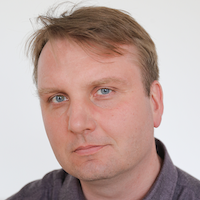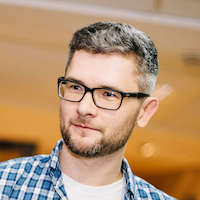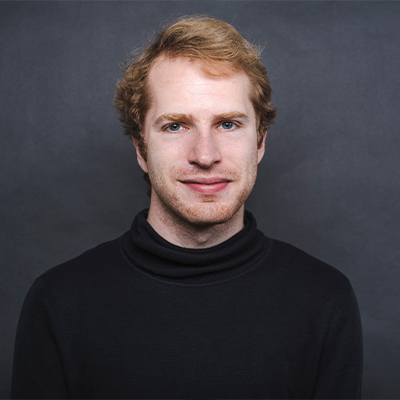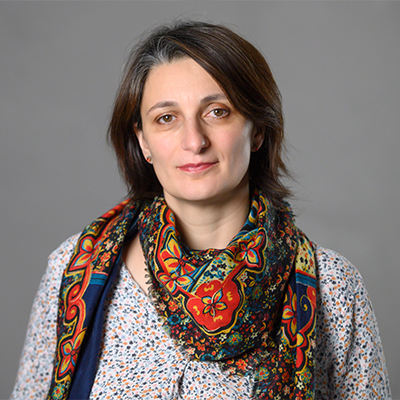Hi from Warsaw,
It will soon be two years since the start of the full-scale Russian invasion in Ukraine, and Europe seems increasingly tired of a conflict with no end in sight. Is that right? Have we forgotten that the Ukrainians are fighting the Russians not only for their freedom, but for our freedom too?
This week we report on how Western countries such as Germany and France are announcing increased military supplies to Ukraine, but this is still a drop in the ocean. Even a doubling of military aid by Germany means the EU’s largest country will spend barely 0.2 percent of its GDP on Ukraine.
Some central and Eastern European countries are contributing even less. Hungary is refusing military aid altogether, in order to make political capital out of its non-interventionist position.
Once again, European defence policy is showing itself to be weak, and without the United States there would be no guarantee of security on the continent. Europe must finally act. It is in both our and Ukraine’s interest.
Enjoy your reading,
Michał Kokot, this week’s Editor-in-Chief
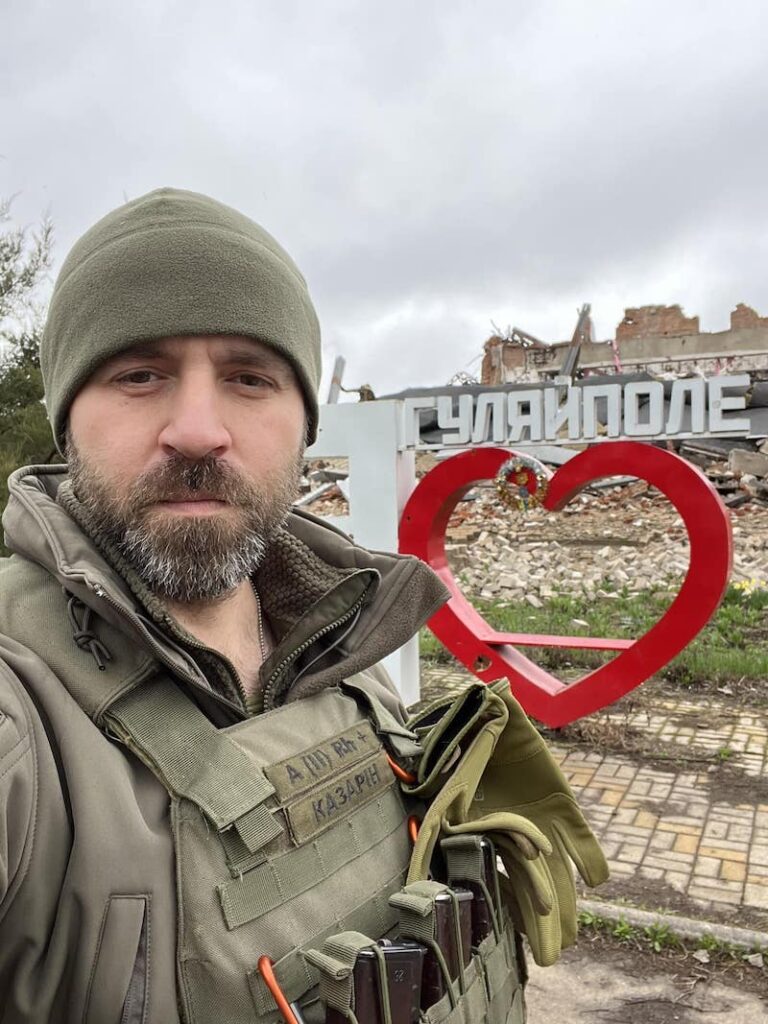
What Pavlo Kazarin never lacked is the skill to find the right words at the right time. Born and raised in Crimea, he left his job as a radio host in the peninsula after the Russian annexation in 2014, and moved to Kyiv. In a few years, he became one of the country’s top columnists, combining a sober style with a bitter attitude, but still rooted in realism. In late 2021, he published an award-winning collection of essays, “Eastern Europe’s Wild West”, about his experience of living in the Ukrainian South, of foreign occupation, realising his Ukrainian identity and building a new life.
On the second day of the full-scale Russian invasion, Pavlo joined the Ukrainian armed forces. “This was a postponed necessity,” he explained. “I didn’t do it in 2014, and spent the time that was given to me by my compatriots who defended Ukraine, and got killed, on building a career [for myself] and various self-reflections. Now it’s my turn to give something back.”
He didn’t stop writing. When numerous Ukrainian businessmen and artists said they would not fight at the frontline, because they were defending the “economic” or “cultural” fronts, he wrote last July: “There is no other front than the real one.”
Now, as the counter-offensive has disappointed many and Western resolve to support Kyiv is wavering, the public mood in Ukraine seems grim. After almost two years of heavy fighting, most soldiers and civilians are exhausted. As a reaction to the challenges, political disputes have returned. Kazarin’s dry, realistic and well-informed perspective is timely, again.
“This winter might be harder than the last,” he wrote recently. “Now it’s not about missiles and electricity. We are entering [the season] with a smaller reserve of psychological resilience and greater collective fatigue. It may be easier to divide us. And there’s nothing worse than that, as this is how we all may lose.”
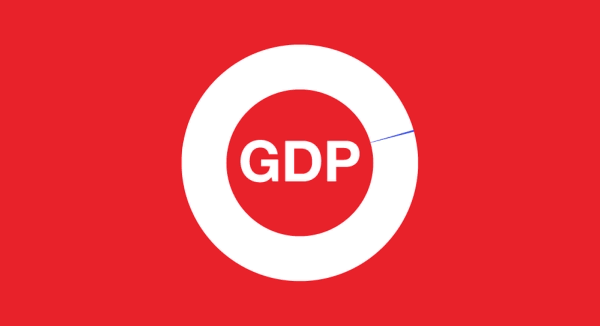
The French government has long concealed the exact amount of its military aid to Ukraine. Officially, the aim was to avoid giving the Russian army any indication of the type of weapons the French were supplying Ukraine.
In November, a parliamentary report finally revealed the precise figure: since the start of Russia’s full-scale invasion of Ukraine, France has given Ukraine 0.1 percent of its GDP in military aid, or 3.2 billion euros. To compare: Estonia spends 1.2 percent of its GDP on weapons for Ukraine.
The transfer of military equipment as such represents only 1.7 billion euros. Moreover, this price does not represent the value of the weapons sent, but the cost of replacing them with more modern equipment.
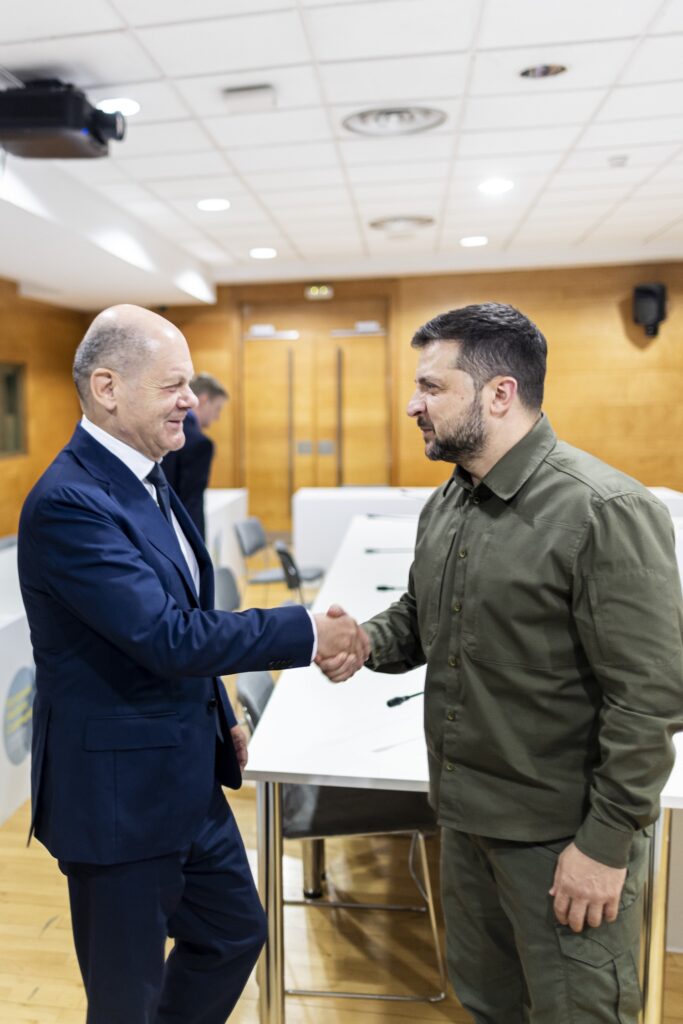
As Russia’s full-scale invasion of Ukraine approaches the two-year mark, the government of President Volodymyr Zelenskyy finds itself in deep water. The counter-offensive has proved far less decisive than expected, and domestic criticism is mounting. To make matters worse, international support for Ukraine is also waning.
According to a study by the Kiel Institute for the World Economy (IfW) Western aid to Ukraine has fallen to its lowest level since January 2022. In the last quarter, Kyiv’s allies pledged just over two billion euros – a year-on-year drop of almost 90 per cent. Ukraine, the IfW points out, is now increasingly dependent on a small group of core donors. At its heart are just two countries: the US and Germany.
Berlin’s emergence as one of Kyiv’s most steadfast supporters seems almost paradoxical. Public attention has declined to a level that Germany’s foreign minister has recently bemoaned the apathy as “fatal”. In addition, Chancellor Olaf Scholz has repeatedly come under international pressure in the past for not providing more of his country’s military arsenal. But the numbers don’t lie: While other major European players have signalled their commitment to Ukraine’s defence, they fall far short of what Berlin is prepared to give.
Last month, Germany announced it would double its military aid to Ukraine from four to eight billion euros in 2024. Conveniently, this extra spending will push the once stingy NATO contributor above its defence spending target of at least two per cent of its annual GDP. But just days later, the government was plunged into a budget crisis. Austerity hawks were quick to single out social spending as the sacrificial lamb, conjuring up images of Ukrainian refugees as undeserving beneficiaries of Germany’s welfare system.
In this anxious political climate, Scholz used decisive words when he addressed his Social Democratic Party’s convention last weekend. “There will be no cuts in social spending,” he proclaimed to rapturous applause. And when it came to Germany’s commitments abroad, he wanted the message to be clear to the Russian president: “Don’t expect us to back down. We will give Ukraine what it needs to defend itself.”
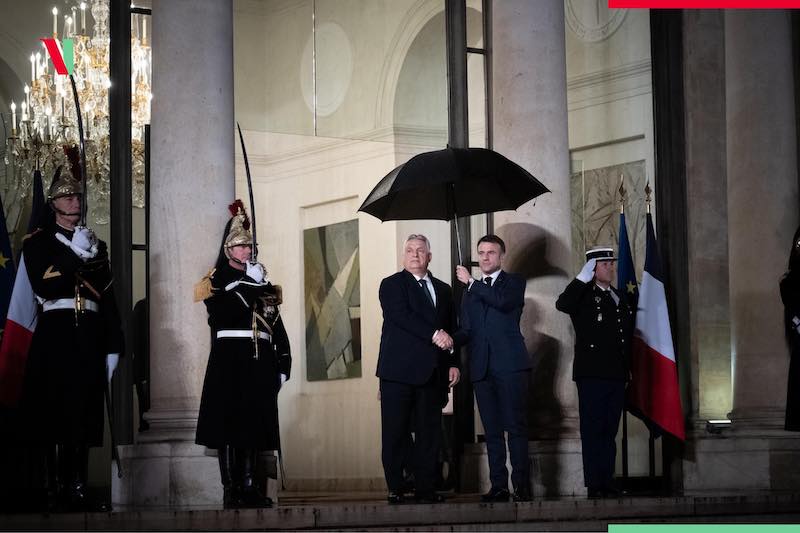
“Ukraine is known to be one of the most corrupt countries in the world,” said Hungarian prime minister Viktor Orbán last week in Paris, where he joined French President Emmanuel Macron for talks, ahead of the EU summit. “It’s a joke,” he added, that the country is ready to join the EU.
The French head of state tried to persuade the Hungarian prime minister to change his mind, but Orbán has stubbornly insisted on rejecting Ukraine’s membership application.
By blocking Ukraine’s EU ambition, Viktor Orbán is once again telling his electorate that “Hungary comes first” and arguing that a quick accession would be “bad” for Hungarians. Ukrainians will ruin European agriculture the next day if they are allowed into the common market, the Hungarian prime minister said.
At the same time, he stressed that Hungary expects the rights of the Hungarian minority in Ukraine to be fully guaranteed, and that the efforts made so far by Ukraine in this regard have been unsatisfactory.
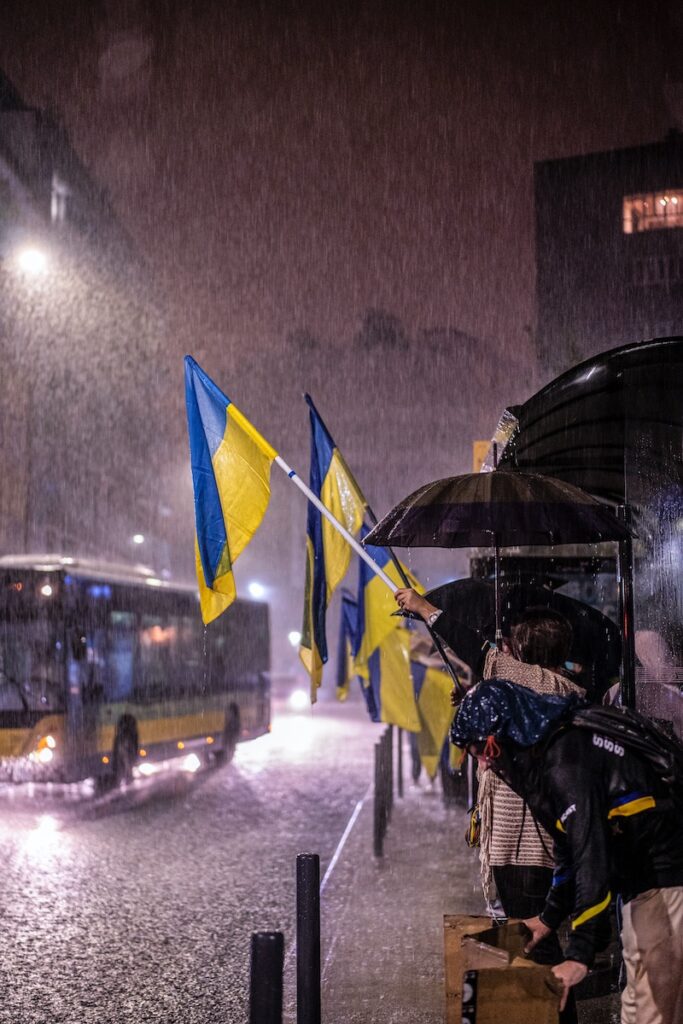
Hardly any military expert had illusions that Ukraine’s bid to liberate its territory would be a walk in the park. Many warned ahead of this year’s summer offensive that progress could be slow and the war could turn into a grind.
However, encouraged by Ukraine’s astonishing successes in 2022, many were hoping for another big breakthrough.
This did not happen. Last year, when the Ukrainian army was fighting an overstretched and fragmented Russian war machine, it had the element of surprise on its side. This year, the area of the counter-offensive, towards the Sea of Azov, was telegraphed way in advance, and the means to achieve it were trumpeted via the public haggling between the allies, who fought over who would send which weapon first. Moscow had time to prepare a formidable line of defence.
Not accomplishing the main goal of cutting off Russia’s land bridge to Crimea is a setback that worries many Ukrainian fighters and disheartens some in Europe.
But is it time for despair? No.
Every war has its setbacks. But determined fighters use the lows to rethink, regroup and push harder.
Only this time, I’d advise Ukraine and its allies to show off less about their tanks and missiles, and court more wisdom to provide what is needed to shape a new strategy for a breakthrough, when the next chance comes.I do not doubt Ukraine’s determination. But is Europe equally resolved to defend its principles, and its promise to be there for “as long as it takes”?
Thanks for reading the 56th edition of European Focus!
We hope that you found this newsletter interesting, especially when it comes to seeing the perspective on the conflict from Ukraine.
As Europeans facing this threat, we should be in solidarity, help the Ukrainians and wish them victory and peace, because they are also fighting for our peace on the continent.
The European Focus is taking a short break. We’ll be back on 17 January. See you next year!
Michał Kokot

